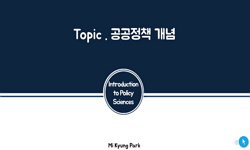This study has two research objectives and themes; one is the analysis of the disciplinary development of policy studies in Korea, China, and Japan commonly imported from American policy theories and methods; the other is the comparative study on the ...
http://chineseinput.net/에서 pinyin(병음)방식으로 중국어를 변환할 수 있습니다.
변환된 중국어를 복사하여 사용하시면 됩니다.
- 中文 을 입력하시려면 zhongwen을 입력하시고 space를누르시면됩니다.
- 北京 을 입력하시려면 beijing을 입력하시고 space를 누르시면 됩니다.
韓·中·日의 정책학 수용과 정체성 및 미래정향에 관한 비교연구
한글로보기https://www.riss.kr/link?id=G3734069
- 저자
-
발행기관
-
-
발행연도
2011년
-
작성언어
Korean
-
주제어
정책이론 ; indigenous policy sciences ; comparative research ; comparative policy ; Japanese policy studies ; Chinese policy studies ; Korean policy studies ; policy theories ; research of policy studies ; policy sciences ; policy studies ; delphi method ; cross-sectional analysis ; impor ; 학문적 정체성 ; 과학적 정체성 ; 경계정체성 ; 집단정체성 ; 한국정책학 ; 중국정책학 ; 일본정책학 ; 미국정책학 ; 종합 또는 총합정책학 ; 학제간 정책연구 ; 정책학의 수용 ; 사회주의 정책학 ; 법정책학 ; 경제정채학 ; 한국정책학회 ; 일본공공정책학회 ; 중국행정관리학회 ; 중국정책과학연구회
-
자료형태
한국연구재단(NRF)
-
0
상세조회 -
0
다운로드
부가정보
다국어 초록 (Multilingual Abstract)
This study has two research objectives and themes; one is the analysis of the disciplinary development of policy studies in Korea, China, and Japan commonly imported from American policy theories and methods; the other is the comparative study on the disciplinary identity in policy studies among Korea, China, and Japan by suggesting future orientations in policy studies. As of this research method, the content analysis on the published literatures in policy studies printed out in the CiNii(Japanese sector), CNKI(chinese sector), and KISS and Korean Policy Studies Review websites, each country's leading citation databases with multidisciplinary coverage. The developmental analysis of each country's policy studies has rooted in adoption and accommodation of policy theories and methods originally developed in the United States. In the late 1990s, however, Korean, Chinese and even Japanese policy communities have turn to the each state's policy identity issue such as theories, methods, case-study in policy circles. Thus this project developed three criteria for the comparative study on the disciplinary identity of these policy studies in those countries as such scientific disciplinary identity, border identity, and collective and/or community identity. First, Korean, Chinese, and Japanese policy scholars have its own policy disciplinary theories and methods based on its academic policy organizations, namely the policy studies associations. In China and Japan, the Chinese and Japanese policy studies have been more oriented to the developments of each country's policy theory than those of Korean counterpart even though the Korean policy community has more powerful organizational connectedness to the policy studies. Second, the three countries have commonly used and consumed the American policy theories and methods, the so-called policy paradigmatic prototype for explaining and/or solving out their policy problems and subjetcs with a variety of analytical and evaluative methods and technigues to the study on each country's policy cases and programs. Finally and the third, the collective or community identity of policy studies among three countries easily find with its own policy study association and/or society. In Korea, however, the policy-related academic societies can be found about twenty names since the 1980s in comparative with the one or two policy study associations in both China and Japan. In the case of Japan, some names for the study of policy such as law, economics, labor study, health, education, social welfare, environment with long academic history with policy-orientation since the 1940s did not rooted in the study of modern policy science. As the final subject of this research project, the on-line questionnaires to policy scholars in Korea and Japan (except Chinese part because of very low participations) revealed out the future orientations to the study of policy; Korean policy professors stressed the development of the Korean policy studies while Japanes responders marked the diversity of the policy theories and methods in inter- and/or multi disciplinary approach, the comprehensive policy study in the Japanese term.
국문 초록 (Abstract)
미국정책학을 수용하고 있는 한국과 중국 및 일본의 미국정책학의 수용에 따른 정책학의 발달정도를 비교분석하면서 각국 정책학의 정체성 비교연구에 의한 정책학의 정향을 제시하고자 ...
미국정책학을 수용하고 있는 한국과 중국 및 일본의 미국정책학의 수용에 따른 정책학의 발달정도를 비교분석하면서 각국 정책학의 정체성 비교연구에 의한 정책학의 정향을 제시하고자 한 본 연구는 먼저 한국정책학의 수용내용을 분석한 후 일본과 중국 정책학의 수준도 연구하였다. 이에 따라서 한국과 중국 및 일본의 정책학의 정체성을 분석하기 위하여 과학적 정체성, 경계 정체성, 집단 정체성 등과 같은 세가지 기준을 제시하고 분석하였다. 먼저 과학적 정체성에 본 한국정책학은 독자적인 정책이론과 방법(론)을 중요시하면서 다양한 연구결과를 가지고 있고 전문가 학문집단을 형성하고 있다. 그러나 일본과 중국은 정책학 전문집단 구성응집력은 한국보다 약하나 중국식 또는 일본형 정책학의 독자적 이론이나 방법론 등에서는 한국보다 다양하고 풍부한 연구수준을 기록하고 있다. 경계 정체성에서 보면, 각국은 각 국가의 고유한 정책사례나 정책문제를 설명하고 해결하려는 정책학적 분석과 내용은 다양하지만 공통적으로 사례분석의 이론적이고 방법론적 기준은 미국중심의 서구정책학을 수용하고 있다는 점이었다. 마지막으로 집단 정체성에서, 한국은 한국정책학회를 중심으로 다양한 학문집단이 1980년대부터 형성되고 있었다. 그러나 한국정책학회를 제외한 기타 학회 등은 소수를 중심으로 하는 학문동호인 수준으로서 전문성을 가진 학문집단으로 성장하지 못했다고 할 수 있다. 중국정책학의 집단 정체성은 중국행정관리학회 등이 있지만 정치와 행정 및 정책 등이 구별되지 못한 현실에서 정책학의 전문집단이 형성되었다고 할 수 없다. 일본은 일본공공정책학회를 중심으로 하면서도 역시 학문적 응집력이 강한 각 대학의 정책학과나 연구소 또는 연구집단이 중심이 되고 있다는 사실을 발견할 수 있다. 또 하나의 특별연구로 한국정책학회와 학회보를 중심으로 한국정책학의 학문적 정체성과 이에 따른 미래정향을 분석하였다. 그리고 한국과 일본 정책학자를 대상으로(중국정책학자는 온라인으로 참여하지 아니해서 제외하였다) 한 델파이 설문조사에서 한국과 일본의 정책학의 미래정향으로, 한국정책학자는 정책학의 독자적 학문체계를 가장 중요시 한 반면에 일본정책학자는 종합과학적 정책학, 즉 여러 학문분야에서 다양한 정책학의 발달이 필요하다고 하였다.









